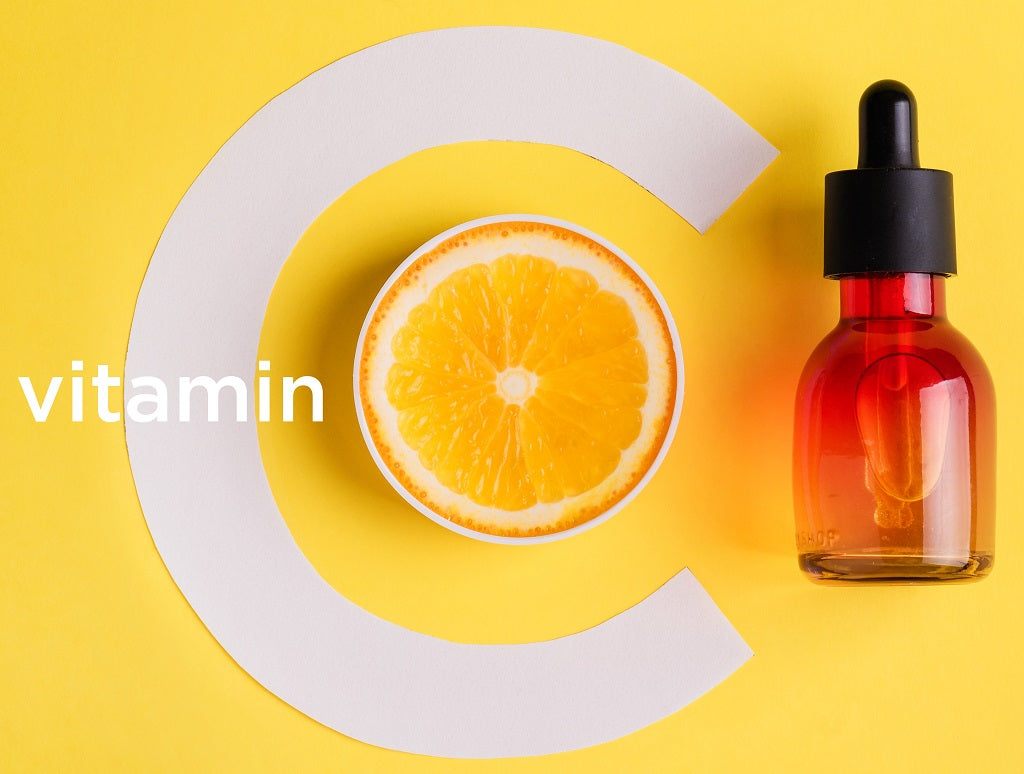Hyaluronic Acid is been widely talked about in the beauty industry because of its incredible properties which are beneficial for your skin. Over the last decade, Hyaluronic Acid has slowly made its way into the world of mainstream cosmetics. It has become the most sought after ingredient in most of the moisturizing creams, lotions, anti-ageing creams, facial serums and sheet masks. Internet is flooded with the benefits of Hyaluronic Acid for your skin and hair. But is Hyaluronic Acid worth the hype? Don’t go by the word. Let’s explore and find out more about Hyaluronic Acid and its skincare benefits.
What is Hyaluronic Acid?
Hyaluronic Acid is a natural humectant which is produced by your body. Hyaluronic Acid is sugar molecule which acts as a magnet, attracting water molecules, helping the skin cells to retain water as much as possible so that your skin looks plump, hydrated and well-nourished. Hyaluronic Acid is also known as Hyaluronan which is mostly found in the outer layer of your skin, connective tissues and eyes. It helps in the lubrication of joints. Hyaluronic Acid is capable of holding up to 1000 times its weight in water.
Also Read : Ingredients In Depth - Hyaluronic Acid
Why Is Hyaluronic Acid So important For Your Skin?
As we age, our skin losses its elasticity because it produces less collagen, making our skin look dull, dry and signs of ageing like wrinkles and fine lines start appearing. In Addition to this, certain skincare products, the harsh weather can break the outer protective layer of your skin leading to a breakout. At this point in time, it is necessary that you use a skincare product which caters to all your skincare needs. That is when the superhero of skincare- Hyaluronic Acid chimes in.
Hyaluronic Acid is lightweight, hence penetrates easily into the skin, binds collagen with water molecules, thus traps moisture making your skin look plumper and more hydrated. Hyaluronic Acid aids in the regeneration of new skin cells, thus making your skin look youthful and radiant. Hyaluronic Acid acts as a skin tonic by rejuvenating and replenishing the dry and dull skin cells and making it more radiant and flawless. It helps to pump life in the dull and sagging skin. Hence, widely used in many anti-ageing creams and lotions as well.
Who Can Use Hyaluronic Acid?
Anyone who feels their skin has become dull and dehydrated can use Hyaluronic Acid. It is quite beneficial for dry skin because of its moisturizing and anti-ageing properties. One of the desirable quality of Hyaluronic Acid is that it can be used by anyone irrespective of their skin type. Its lightweight and non-greasy formula make it beneficial for oily and combination skin types. It does not trigger rosacea or acne or other allergic conditions. It hydrates the skin from within without giving an oily look to your face. Hyaluronic Acid effectively treats acne-prone as well as sensitive skin. It is rich in antioxidants which fight free radicals which are responsible for causing wrinkles, fine lines. Hyaluronic Acid creates a protective barrier on your skin and helps to retain moisture, thus keeping your skin soft and hydrated.
Benefits Of Hyaluronic Acid For Your Skin

Hyaluronic Acid has become the latest trend as it is slowly making its way into facial creams, anti-ageing serums, night creams, moisturizing body lotions. It makes your face dewy, plump and flawless. Many skincare experts and cosmetologists swear by it, making Hyaluronic Acid the most sought after ingredient in the beauty industry.
Helps To Keep Skin Hydrated
Loss of moisture from the skin cells is the major cause of dry and dull skin. Hyaluronic Acid acts as a natural humectant, hence it has the ability to attract moisture and retains it in your skin. Hyaluronic Acid replenishes your skin cells and your skin becomes soft, plump and radiant. It also reduces signs of premature ageing.
Also Read : What makes Hyaluronic Acid A God-Sent for Skin Hydration
Reduces Wrinkles And Fine Line
Hyaluronic Acid attracts water like a magnet. It binds with collagen on one side and water molecules on the other side which makes your skin look plump, hydrated and nourished. Wrinkles and fine lines do not appear on the healthy and well-nourished skin.
Improves Elasticity Of Skin
Hyaluronic Acid Serum with Vitamin C effectively boosts the collagen production, thus increasing the elasticity of your skin. It helps to reduce skin sagging and dryness making your skin youthful and radiant.
Also Read : How is the Pairing of Hyaluronic Acid and Vitamin C A Godsent in the Skincare World
Forms a Protective Barrier On The Skin
Dry skin is vulnerable to breakouts and infections. Hyaluronic Acid remains on the surface of the skin, attracts and retains moisture in the skin, thus forming a protective moisture-rich barrier over the skin surface. Its antioxidants help to fight free radicals which are formed due to exposure to sunlight and pollution.
How To Use Hyaluronic Acid On Your Face and Skin
Hyaluronic Acid keeps your skin moisturized throughout the day. Depending upon your skin type, you can use it once or twice a day. People with extra dry skin can use Hyaluronic Acid twice a day to keep your skin soft, smooth and plump. It is a must-have product in your beauty aisle. For better results, you can pair it with peels, retinols and vitamins. Always apply Hyaluronic Acid on clean skin. Followed by a moisturizer and then do your makeup as usual. Let’s have a look at some of the ways to incorporate Hyaluronic Acid in your skincare regime.
1. Apply It Just After The Shower
Best way to apply Hyaluronic Acid is to apply on a clean and damp skin .i.e after a shower. You can use it as a makeup base. The thumb rule is- apply Hyaluronic Acid, followed by moisturizer and then makeup.
2. Apply Along With a Moisturizer
You can team up Hyaluronic Acid with your favourite moisturizer so that your skin can get the benefits of both the moisturizer and HA.
3. Apply As Facial Serum
To keep it simple you can apply Hyaluronic Acid as your facial serum and apply every night before going to bed. The hyaluronic acid serum does not make your skin oily, instead gives a radiant-looking skin.
4. Hyaluronic Acid Injectables
Are you worried about your dull, dry and sagging skin and are looking for something which will give an instant result and help your skin bounce back to being healthy? Then you should think of giving Hyaluronic Injectables a try. The hyaluronic acid gel is used in injectables to add volume to the outer layer of your skin. The Hyaluronic Acid gel is injected in a specific area which is sunken or where wrinkles and fine lines are prominent. Hyaluronic Acid attracts the water molecules, creating a filling effect on that particular area and makes your skin look plump and more youthful by smoothing out wrinkles and fine lines. Hyaluronic Acid Injectables start dissolving over a period of one year.
Word of Caution
The word acid can sound to be harsh on your skin, but with Hyaluronic Acid it is actually the other way round. As Hyaluronic Acid is a naturally occurring substance in our body, it is generally considered safe for topical skincare. It can be quite safe and gentle even on sensitive and acne-prone skin. There are chances of your skin getting bruised or swollen by the use of Hyaluronic Acid injectables. But these side effects are short-termed and may diminish in a day or two. Injectables and fillers have their own set of risk factors involved. But always make sure that you go to the renowned and certified dermatologist to get these injectables into your skin so that your skin can reap the maximum benefit of Hyaluronic Acid fillers, without causing any harm to your skin.
Pregnant women and people who are having any active skin infection should avoid using Hyaluronic Acid fillers
Hyaluronic Acid is a boon for your thirsty, dull and sagging skin. Hyaluronic Acid effectively replenishes, hydrates and nourishes your skin cells making it look plump, smooth, radiant, flawless and more youthful. Give Hyaluronic Acid a try and you will be in love with your skin.
Disclaimer: All the content on anveya.com/blogs is solely for information. It is not intended to be a substitute for professional medical advice, diagnosis or treatment. Always seek the advice of your physician or a qualified health care provider. The information, suggestion or remedies mentioned on this site are provided without warranty of any kind, whether express or implied.



